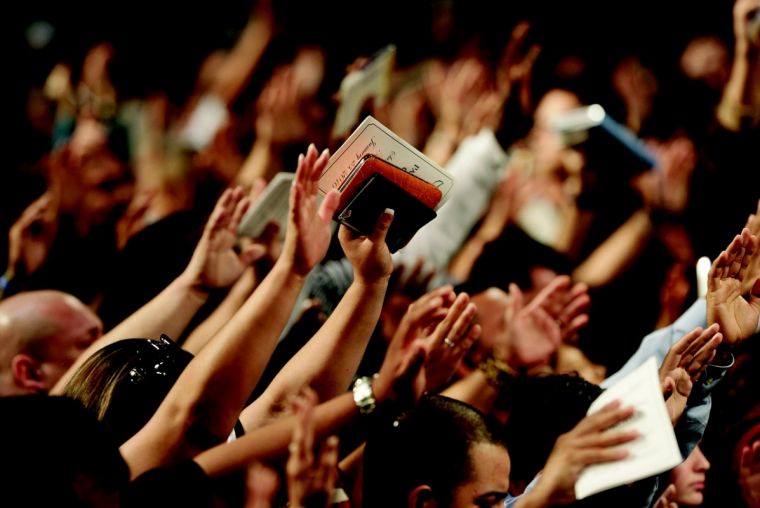'Evangelicalism' is toxic. It's time to kill off the brand
Is the word 'evangelical' so toxic that it should be dropped? It's a perennial question. Tony Campolo said last year he didn't want to be known as an evangelical any more because the term had been hijacked by the religious right. He's not the only one. From its roots in the 'good news' of Jesus, it's become the badge of a tribe.

In the old days, it didn't mean what it does today. The theological college where I trained defined its mission in the 18th century as to train 'able and evangelical ministers'. It didn't mean ministers who belonged to a particular party, but who were outward-looking and enthusiastic. Today, the broad and generous evangelicalism that saw the foundation of the Evangelical Alliance in 1846 across denominational lines, when such collaboration was far less common, is struggling for air. The Church of England is feeling it with the appointment of rival 'missionary bishops'. In the US, a complementarian, neo-Calvinist ideology is bidding to be recognised as the sole keeper of the orthodox flame. It's not enough to claim to be an evangelical; you have to prove it by being the right kind of evangelical.
In truth, it's never been an uncontested label. The saintly CH Spurgeon left the EA over the question of baptismal regeneration, affirmed in the CofE's Book of Common Prayer – he launched a mighty blast against 'evangelical' clergy who, 'knowing that baptism does not regenerate, yet declare in public that it does'.
Now the term's been called into question again, certainly in an American context but arguably more widely. Ryan P Burge, who teaches at Eastern Illinois University, has analysed the use of 'evangelical' on Twitter using a clever Google tool. While it could be, he says, 'one of the most overused, misunderstood terms in modern American politics', he concludes that this misunderstanding is potentially very damaging. The details of the research are here, but one of his findings was that in tweets sent between February 23 and April 1, 2017, after 'Christianity' and 'Christian', the most common association with 'evangelical' was 'Trump'.
'If anything, that indicates that observers of evangelicalism see it as a largely political movement, especially in light of the election of Donald Trump,' says Burge. He notes that the word 'white' is the fifth most used in the dataset, indicating the average tweeter sees evangelicalism and 'white' as closely linked.
Burge says: 'Taken together an image emerges of the word "evangelical" that is very closely linked to American politics and is most often uttered by individuals who are not evangelical themselves. It seems that the religious identity of the movement has become so closely meshed with its political component that they are seen as one in the same by those most vocal on social media.'
So that's it: in the eyes of secular America, being evangelical means being a white supporter of Donald Trump. What about the eyes of secular Britain? The extraordinary treatment of Tim Farron over his opinions on gay sex indicates that here, too, evangelicals have an image problem. The resolute opposition of most evangelical organisations to homosexuality and transgender procedures has ensured that anyone who comes out as an evangelical is going to be seen as, frankly, a bit weird.
That, in itself, isn't a problem; Christians should worry if we're regarded as entirely normal. But the question is whether the word 'evangelical' has had its day. And it's clear that, at the very least, it has a serious image problem. So why would we want to keep it?
One answer is that it's simply a convenient shorthand for referring to a type of spirituality, a shared history, a network of churches and organisations and a few distinctive theological emphases. Fair enough, but that is precisely the brand that's been tarnished by its identification with political and social conservatism. So the question is, do we need the brand at all? Can we aspire to something better – not necessarily post-evangelical, in the sense of jettisoning theological and spiritual distinctives, but post-tribal?
Burge's research found, counter-intuitively, that 'the general media uses the term more than the Christian media does'. He suggests: 'It may be that newspaper writers believe that the public understands the word and it will generate traffic. However, the opposite could be true: evangelical writers don't believe that their target audience understands the term and therefore they avoid it in their news stories.'
I suspect, in fact, that 'evangelical writers' don't use the term because it's become such a catch-all that it's no longer sufficiently distinctive in the fiercely-contested space of the culture in which they work. But if that trend can be encouraged – if Christians can avoid using 'evangelical' as the badge of a party – then perhaps, in the end, the secular media will follow. Then Christians can be freer to be just Christians, rather than a particular brand of Christian. It won't mean the end of argument and factionalism, but it might allow us to recover a useful word as a description of how we do the gospel, rather than what we think the gospel is.
Follow Mark Woods on Twitter: @RevMarkWoods











